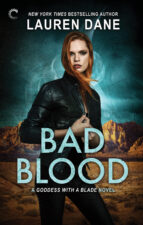|
Sep
6 2010 | ||
Without getting into particulars (as there are plenty of examples from all sorts of places), I read a post yesterday detailing the public meltdown of a publisher via author loop and the, what seems to be inevitable rush by authors writing for the messed up house to make excuses for said public meltdown. Then come the questions about why authors remain silent in the face of such behavior by their publishers.
As authors, most of us know what it means to keep our shit together and not flip out, especially in public. We keep our business our business and try not to take our beefs public unless or until we have no other choice but to make it public. (A note: I’m not suggesting the authors who finally become so frustrated by non-payment or other fuckery and take their beef public are bad or unprofessional. I completely and totally understand why sometimes you have to take that step.)
I see readers ask, from time to time, why authors remain silent when publishers don’t pay on time or at all, or in the face of other shenanigans. I can’t answer for anyone else, but in my case, it’s more a matter of holding on to the few remaining things I can control – my own behavior. You see, if I began a tit for tat slinging match with a publisher I’ve already stopped writing for, all I’m doing is sinking to their level.
I accept that to some extent, I’m a public figure. Certainly I’m not Justin whatshisface, but what I do an say in public is, well, in public. This goes for Biz loops, author loops, reader loops, my blog, livejournal, etc. The internet is not private. An author loop is not private. And while I would not cut and paste something I see on a loop, I cannot stomach the idea that one of the four times every year that an employee or even the publisher gets on the author or biz loop to rant like an insane person, revealing things about other employees or authors that are NONE of anyone’s business but those involved – this is not private. This sort of thing can and does get out, even if it’s just people talking about it amongst themselves.
If you don’t want this insanity to go public, THINK BEFORE YOU TYPE, or better yet, keep that person offline so she doesn’t do it over and over again. This goes for authors who go nutso about an editor who rejected them, authors who whine about bad reviews, publishers who blame Borders for their own financial problems on the author loop or when the publisher goes on a full attack of an ex employee, also on the author loop. None of this is private. If you want it kept quiet, don’t spew your crazy all over the interwebs, yes?
But back to the question of silence: Most of us aren’t wholly silent, we’re taking our issues to the people who can deal with them. Most of that is behind the scenes. I’d say about 90% of the stuff I have problems with can be dealt with quietly and efficiently by me and my editor, or between my agent and the publisher. Thankfully, the overwhelming majority of publishers are not insane and these issues, especially when dealt with professionally and quietly, are usually easily enough dealt with.
So we keep our shit to ourselves because that’s how you do things in your job *MOST OF THE TIME*. It’s not to engage in a conspiracy with the publishers or whatever, it’s to handle things in the most effective manner. What appears to the outside as us being silent, is actually, most of the time, one of the parties to the situation being professional and attempting to handle their business appropriately. Because it’s none of anyone’s business when I don’t like a cover, or when there’s a problem with my royalties – especially if I can get those things fixed by working through the right channels.
This business, though it seems monolithic, is actually pretty intimate. Editors talk amongst themselves and with their authors, they talk to agents, who also talk to each other. I’ve been asked about authors by others in the biz on more than one occasion. Your public behavior does impact your business and it can be hugely negative in the end. So most of us who want to make this a career attempt to be careful about the stuff we do and say. The price of whistleblowing is not always a good one. I think about this all the time and given my discussions with others, I think this issue is at the forefront of many authors’ minds.
As for those situations when you’ve done all you can and the problem still exists, then what do you do? In some cases, authors take it public. This exposes an author to all sorts of attention, negative and positive. And yes, other authors can see there’s a problem and one hopes they’d at least think twice about a house before writing there. But to be totally honest, crazy publishers usually go hand in hand with raving fangirl authors who tattle to the powers that be when they see anyone even so much as asking a simple question, and they tend to brutalize the author loop whenever questions arise. This petty bullying isn’t uncommon and it serves to keep the loops from making any noise about the elephant in the room – usually royalties related, but also sometimes about other things like print or covers or whatever. The fangirl bully is a tool and over time I think it becomes apparent who that author is and if you need to be told not to let this author get up in your face when you’re asking a question about your own book, no one can help you.
You see, it’s not my job to warn people away from the obvious. When you look at a publisher and you see that 85% of their top stable of authors has left and rarely, if ever even mentions the name of that publisher, that’s a sign, is it not? This business will eat you alive if you ignore the obvious. If you hear from 8 authors that poodle petal press doesn’t pay on time but two people insist they do, that’s basic numbers, isn’t it? Those two might be the ones lucky enough to get their royalties on time, but what of the 8 others? Eventually, you might be one of those 8 and you will not be able to blame no one telling you the facts, you’ll only have yourself to blame for signing that contract KNOWING there are issues.
Each author has to figure out where he or she stands on the problem and how they need to deal with it. Sometimes there is no real choice but to go public and blow the whistle. Other times, lines shift and an author can do things that make it clear what her choices are and what her feelings are in a subtle manner. Like say, removing all links to books with that publisher from her website. Or, when questions come up being honest without making it personal. (Which is hard, because when it comes to your money, or your books, or your rights it IS personal).
In the end, I like to hope that newbie writers and more established authors both can look at all the information out there and make an educated choice about whether or not to write for poodle petal press. I know sometimes it’s hard to say no when a contract is being offered. But in the long run, please trust me when I tell you that it is beyond important to take in those signs and LISTEN as you run to a better publisher.





September 6th, 2010 at 9:28 am · Link
I would just have to say one thing.. Well Said… While I can’t really comment on the issue at hand the message is loud and clear.
September 6th, 2010 at 10:08 am · Link
This is why I love your blogs they give a factual insightful view of publishing through an authors experience. I also think this advice in general can be used in the world of business.
September 6th, 2010 at 10:25 am · Link
All I can say is always very interesting and well said
September 6th, 2010 at 10:27 am · Link
Thank you for such an enlightening post. Whats bad is how many people think that typing something is so very different than speaking it.
It isn’t.
Worse yet, once typed, unlike verbal that may be forgotten, typed can linger like a bad fart.
September 6th, 2010 at 12:20 pm · Link
Much of what you say is so true, and unfortunately the Internet has seemingly encouraged a mental diarrhea, in that blogs seemed to be online diaries full of rants, which further invites Jerry Springer like comments and vitriol. HBO’s Bill Maher observed (several years ago), RE: the hot protests over the then proposed Patriot Act… that there shouldn’t be much dispute about privacy among Americans, because Americans do everything they possibly can to spill personal details, via cell phone, Twitter, Facebook, blogs. He might have said we’re all too busy showing off.
As a long-time corporate professional, I not only gauged what I said, but who I said it to, because there are the true-blue trustworthies who can exercise discretion, versus the fair-weathered toadies who further their own agendas. Probably those same principles guide the field of publishing.
Let’s face it, even if we can detach to some extent, what we do, our fiction, our writing, is often an extension of us, and so criticism and hurt feelings can result in cringe-worthy online drama. Or certainly, if there is a scam or potential litigation, how can innocent lambs avoid the quagmire?
We’ve got a whole nation out there, it seems, hellbent on being Simon Cowell and setting everyone straight, and I think if we all come from a position of humility, e.g.., “My God, I could actually be wrong about something,†and tact, (“How would I feel if this accusation was waged against me?â€) and professionalism, (“I’ll put a leash on my tongue, even if others don’t.”)
The explosion of self-publishing could lead to further scams, so I think an outlet like Preditors & Editors is valid. They seem to screen and validate the information, use numbers and trends over the long-term, rather than blastint… that nasty back-and-forthing. Everyone claims to know the real story. We all know the truth: there are two sides to a story.
Your observation about good authors sticking with a publisher for the long-haul makes a lot of good common sense, and the bowling split of authors, (one having a great experience, others not-so-hot) could be a red flag.
I learned the really hard way, e.g., “Thank you, may I have another?†– and ventured into a contract a wide-eyed neophyte, despite my reasonably advanced age. I didn’t even know about Preditors & Editors. Today I’m armed with much savvier contacts, have befriended authors (close buddies) who work with top-notch editors and major publishers. My switch to fiction may not be as tumultuous.
My old writer partner used to say, “Golden Rule, Golden Rule.” I try to remember that, abide by it. Hard to do, I know, when others aren’t so ethical.
September 6th, 2010 at 5:04 pm · Link
I enjoyed this post and I find it relates not only to publishing but to regular jobs and life as well. No one if their right mind would throw out the crazy on work email, and you don’t slam your employer on your blog, etc. The advise above could serve all people well not just authors. Well said.
September 7th, 2010 at 8:50 pm · Link
Tina get out of the basement again?